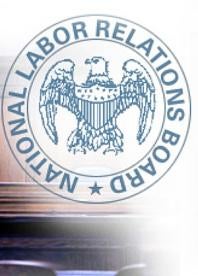We have posted extensively about the NLRB’s crusade against overbroad workplace policies (see our most recent posts here and here), ranging from social media policies to workplace conduct and disciplinary policies and everything in between. Well the Board is back at it again — handing down two solicitation decisions in the past couple of weeks. On November 26, it invalidated Mercedes-Benz’s seemingly innocent solicitation and distribution policy in its employee handbook. On December 11, the NLRB handed down a controversial decision regarding an employee’s right to use company-provided email systems on non-working time to send NLRA-protected communications. Today we cover the former decision; later this week, the latter.
So let’s take a look at Mercedes-Benz’s offending handbook policy:
SOLICITATION AND DISTRIBUTION OF MATERIALS
It is the goal of MBUSI to produce the highest quality vehicle at the most competitive cost. Activities, which interfere with these efforts, cannot be permitted. MBUSI prohibits solicitation and/or distribution of non-work related materials by Team Members during work time or in working areas.
Seems harmless enough, right? Not so said the NLRB. The Board, in adopting the decision of an administrative law judge (ALJ) invalidating the policy, found the solicitation policy overbroad and a potential threat to workers’ rights under Section 7 of the NLRA to engage in protected concerted activity.
According to Board precedent, employers may ban solicitation in working areas during working time but may not extend such bans to working areas during non-working time. Here, however, the Board concluded that employees “reasonably would understand” Mercedes-Benz’s policy to prohibit solicitation in work areas by employees not on working time or other employees not on working time.
Mercedes-Benz argued that, irrespective of the language in its policy, employees were nonetheless permitted to freely solicit one another (and did so) in the workplace during break times. The ALJ, however, found unavailing Mercedes-Benz’s defense that its solicitation policy was not enforced as written, stating that “a rule does not have to be enforced to be unlawful.”
The ALJ concluded that, “as long as the rule is ‘on the books,’ it continues to have potential to chill employees’ exercise of their Section 7 rights. Its existence requires a remedy.” The ALJ continued: “I find that the Respondent truly sought to be neutral and did not intend its rule to be construed in a way which discouraged employees from engaging in protected activities. However, the Respondent’s intent is not relevant.” Invoking the Board’s words from a case earlier this year where the employer similarly maintained that its rule, as applied, permitted solicitation in work areas when both employees are on break, the ALJ noted: “Perhaps that was what the Respondent meant to say, but it is not what the rule says.”
As for a remedy, the Board ordered Mercedes-Benz to: (A) rescind the rule in its employee handbook that prohibits solicitation of employees not on working time by other employees not on working time in working areas; (B) furnish employees with an insert for the current employee handbook, or publish and distribute to employees a revised employee handbook, with a lawfully worded solicitation and distribution policy; and (C) post notices of its violation in conspicuous areas of the workplace for 60 days.
Accordingly, as with all workplace policies, employers should carefully review their solicitation policies to ensure that they are narrowly tailored and will pass muster under the current NLRB’s views. In this case, simply deleting from the policy the phrase “or in working areas” or even just the word “or” would likely have saved the policy from unwanted Board scrutiny.



 i
i

